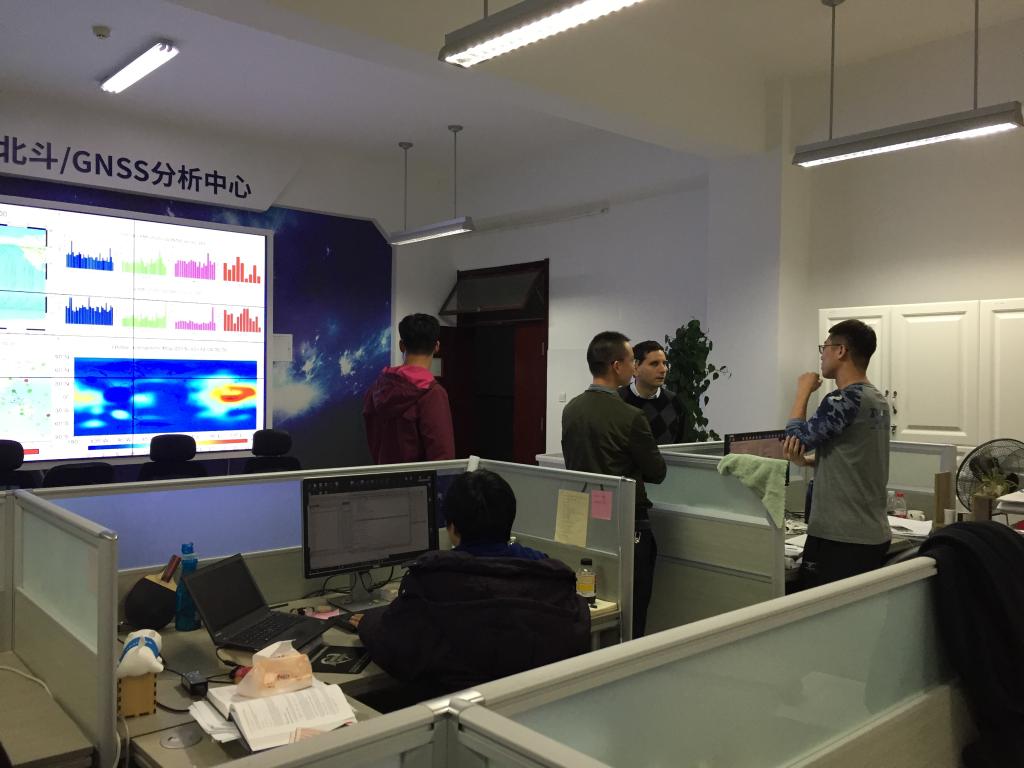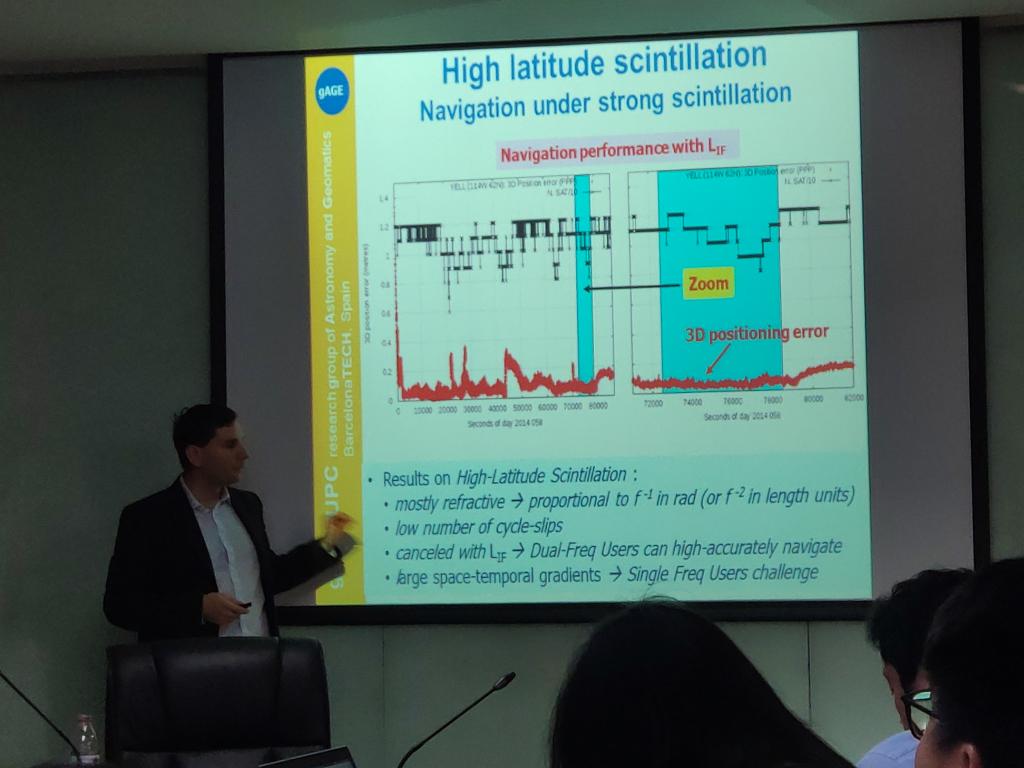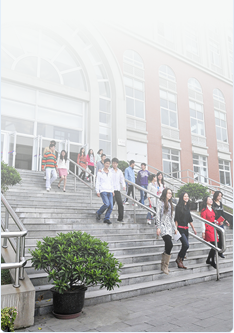On October 9-16, 2019, Dr. Nie Wenfeng from the Institute of Space Science, invited Dr. Adria from the Universitat Politècnica de Catalunya (UPC),Spain, to visit the Center for Satellite Navigation and Remote Sensing (CSNRS).
Companied by Dr. Nie, Dr. Adria visited the Satellite Navigation and Remote Sensing Laboratory and the Beidou/GNSS Analysis Center of Shandong University. The members of the CSNRS introduced the hyperspectral remote sensing drones and GNSS receivers, as well as the high-precision products from the Beidou/GNSS (Global Satellite Navigation System) Analysis Center in detail. Subsequently, Dr. Adria gave a presentation entitled "The research group of Astronomy and Geomatics (gAGE): Presentation of Activities" and "High-Accuracy Navigation under Ionospheric Scintillation" in Room 211 of the Wentian Building. Professor Xu Tianhe, PI of the CSNRS, hosted the presentation. In the report, Dr. Adria first introduced the gAGE team of UPC in the following three aspects: high-precision relative positioning RTK and absolute positioning PPP, real-time high-precision ionospheric observation and modeling, and satellite-based augmentation system (SBAS) signal monitoring. Particularly, Dr. Adria explained their innovative contributions to the three aspects. Then, from the perspective of data processing, he presented the necessity to adopt different methods to mitigate the impacts of the ionospheric scintillation on high-accuracy positioning, because of the reflective and diffractive effects of the GNSS signals at high latitudes and low latitudes are different. Finally, Dr. Adria introduced the geodetic detrending method pioneered by the gAGE group to the application of GNSS high-accuracy positioning during ionospheric scintillation, and had a discussion with the field teachers and students.
During the visit, the two sides also conducted in-depth exchanges on high-precision GNSS navigation and positioning, signed a protocol for multi-system GNSS positioning software gLAB test, and reached an agreement on graduate exchange training.
Dr.Adria is currently a Marie Sklodowska Curie Individual Fellow titled “High Accuracy Navigation under Scintillation Conditions (NAVSCIN)”. His current research interest in the field of the satellite navigation is about the ionospheric enhancement of multi-frequency and multi-constellation techniques for high-accuracy satellite-based navigation. He has published several peer-reviewed papers on ionosphere model in high-impact Journals ,such as Journal of Geodesy, IEEE Transactions in Geoscience and Remote Sensing and GPS Solutions. He has also received several important awards, including the “Best Presentation Award” from the US Institute of Navigation and “Outstanding Poster Award” from the European Geosciences Union. He is also the guest editor of the special issue “GNSS data processing and navigation” in Sensor and Chairman of Session A4: GNSS Remote Sensing, Atmospheric Science and Space Applications in the 2019 International Technical Meeting of The US Institute of Navigation in Reston, Virginia (USA).




